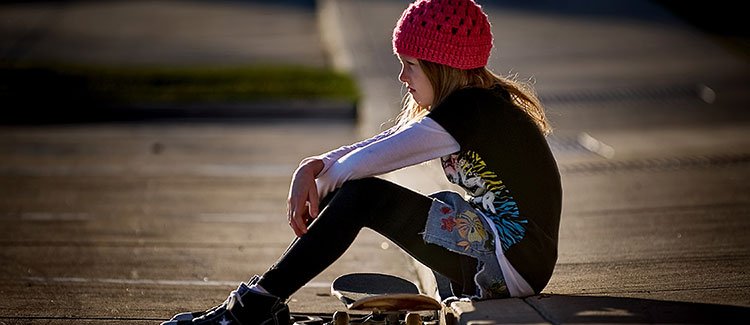“Everybody hates me.” “I have no friends.” These aren’t easy things for parents to hear. Your first instinct may be to try to fix it, or assure your child that it isn’t true. When your son or daughter cries “Nobody likes me,” you know that it’s time to do something.
“As parents, what we want to say is, ‘That’s not true!’ because it’s painful for us to think that people hate our child, and it’s painful that our child thinks someone hates them. So we want to fix it; it’s a very strong impulse,” says parent coach and psychologist Erica Reischer. “But we have to hold ourselves back because if we do that, we inadvertently send the message that those feelings are bad, that maybe they can’t handle those feelings, and most importantly, it doesn’t give them the opportunity to develop coping skills.”
Instead of rushing to smooth things over when a child feels disliked, experts agree, parents should focus on teaching their child to help themselves.
“It’s very hard to sit back and just listen because we want to get on the phone and call the mother of the girl who won’t talk to our daughter anymore and say, ‘What’s going on with your daughter?’ But nobody really learns anything from that,” says Madeline Levine, author of Teach Your Children Well. When this happens, she says, “It’s an opportunity to learn about the complexities of friendship. ‘Why do you think that happened? Did you have anything to do with it? What do you think of this person as a friend now?’ Because that’s going to happen in life. You’re going to get dropped by a girlfriend, you’re going to get dropped by a boyfriend.”
Addressing “Nobody likes me.”
Here are six ways to transform a painful moment into an opportunity for growth and a chance to learn a valuable life skill.
-
First, listen
Everyone has a bad day. A small slight can easily get blown out of proportion and lead your child to come home and declare that they haven’t a friend in the world. The first thing to do is listen, says Levine. You want to understand if there’s a bigger pattern of your child being excluded, or if this is a one-time occurrence.
“By listening you can figure out if there’s a real problem, like bullying or something missing in your child’s social skills, that needs to be attended to,” she says.
-
Acknowledge your child’s feelings
“Starting with empathy is the most important thing. You say something like, ‘Oh sweetie, I know you feel like everyone hates you, that’s really painful,’ says Reischer.
When your child expresses to you that they’re feeling hurt or sad, validating that feeling and letting them experience it is an important practice for handling such feelings as she gets older, says Jane Nelsen, author of Positive Discipline. Have faith in your child’s ability to successfully weather the negative experiences in life, says Nelsen, and she will learn to have that same faith in herself.
-
Ask open-ended questions
After you’ve expressed empathy, asking your child questions, such as ‘Why do you think that?’ can help kids analyze the problem and arrive at their own solutions.
“Ask a lot of questions to lead them through the thought process, so that they can own their own feeling of, ‘Oh, you know what? I don’t think that is really true. They weren’t really running away from me. There was another game and they didn’t see me.’ If they come to that conclusion on their own, they’re much more likely to believe it,” says Reicher. “Also it helps them understand how to go through that process on their own.”
-
Assess your child’s social skills
If you suspect there’s something more to your child’s assertion that nobody likes me, do some troubleshooting, says Mormon Moms blogger Heidi Allen Hendricks. “Maybe they’re shy or obnoxious or hygiene is an issue,” she says. Talk to your child’s teacher and ask what they’ve observed about your child’s social skills and interactions with his peers. Invite another child to play. Enroll your child in an activity so that he has more opportunities to make friends. Another of Hendricks’ proactive suggestions: “I’d tell my child to look for someone else who is lonely to be their friend.”
-
Take the opportunity to teach empathy
When Nelsen’s daughter reported being teased about her curly hair, Nelsen saw an opening to talk about the feelings of others. She asked her daughter, do you know other kids who have been teased? “She thought about it and said, ‘Yes.’ I asked, ‘What does everybody else get teased about?’ One was teased for her big teeth, another for something else, another for something else.” It was helpful, Nelsen says, for her daughter to realize she wasn’t alone in her experience of having been teased. “Then I could ask, ‘Now that you know how it feels, how do you think it feels for other people?’ It wasn’t dismissing her. It was helping her realize what other people are feeling.”
-
Let your child lead in finding a solution to the “Nobody likes me” problem
Once you have identified what the problem is, whether it’s getting left out of an activity or someone’s hurtful words at the lunch table, ask your child what ideas they have for a solution, says Christine Carter, parenting expert and the author of Raising Happiness.
Although your child might be looking to you to make the problem go away, this is an opportunity to show her that she’s capable of finding the answers herself. Ask your child, “Can you think of anything you can do to resolve this problem now? To prevent the problem in the future?”





